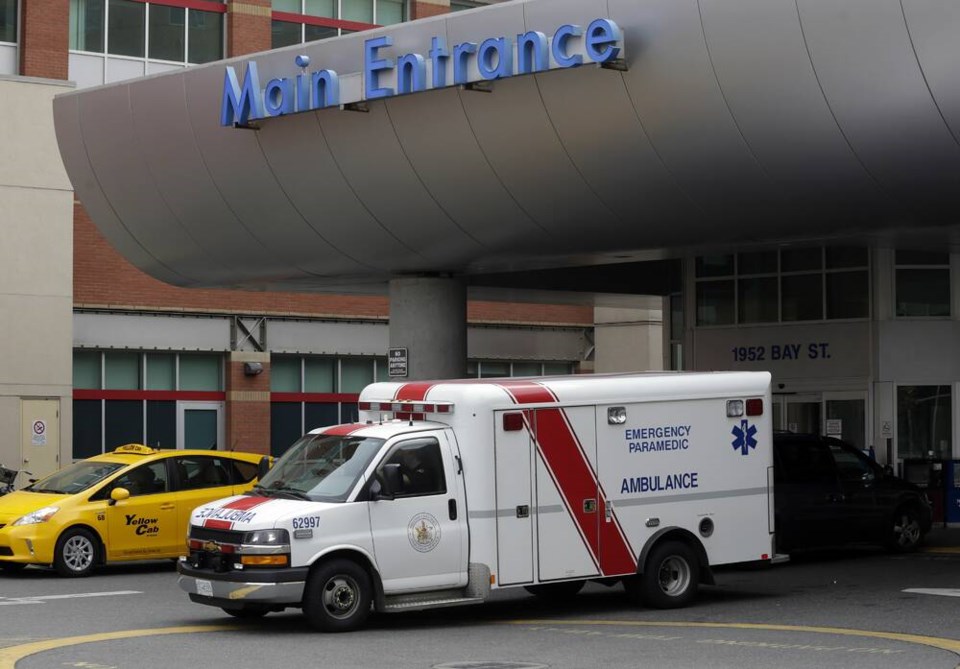Elective surgeries are once again being cancelled at hospitals across the province. Is this really necessary?
The downsides are obvious. Some patients with life-altering pain or mobility issues, many of whom have been on wait lists for months, in some cases years, are now in limbo.
The reason in itself is obvious. We’re seeing huge increases in COVID-19 caseloads, well beyond the earlier “worst case” scenarios. Much of the spike is due to the new Omicron strain, which is proving far more infectious than previous versions of the virus.
Between Dec. 31 and Jan. 2-3, there were 9,332 new cases reported across the province.
There are several uncertainties here. When the Omicron variant was first identified in South Africa, it appeared that, while transmissibility was high, death rates were lower than those associated with earlier strains.
By some reports, officials in that country now believe the Omicron wave has peaked. If so, perhaps this strain of the virus will turn out to be an intense but short-lived storm. We simply don’t know.
Again, it also seems that symptoms of this variant may be less severe than initially feared. But that makes it difficult to estimate the true infection rate.
Some of those who get the disease may not even know it, yet they can still pass the virus on to those around them, particularly the elderly and infirm.
So yes, there is every reason to take precautions.
Yet we’ve been down this path before. At the onset of the COVID-19 pandemic in early 2020, provincial health officer Dr. Bonnie Henry ordered about 4,000 hospital beds vacated in anticipation of an onslaught.
That onslaught never materialized. At the peak, only around one-10th of those beds were needed. Surgeries were needlessly cancelled.
It’s worth looking more closely at how hospital beds are freed up. Patients already in hospital are not sent home.
Rather, the decision is made not to admit new patients unnecessarily. That’s the rationale behind cancelling surgeries. Patients who would otherwise have been admitted are simply turned away.
Henry hasn’t said how many surgeries will be put off, but the numbers must run into the hundreds, and perhaps more, as they did in early 2020.
Yet this raises the question: Is there any likely scenario in which that many new COVID patients will need instantaneous hospitalization? Large caseloads needn’t translate into large numbers of hospitalizations.
In effect, rather than proactively shutting hospital beds in numbers that may never be needed, a wiser and more humane strategy would be to proceed on a step-by-step basis.
That is to say, wait until you actually need the beds before you empty them. Or more accurately, wait at least until you see that need approaching in the form of large numbers of admissions.
None of this diminishes the need for every eligible person to be vaccinated. We do know now that vaccination is not in itself an absolute safeguard against becoming infected. No vaccine offers 100 per cent protection.
However, we also know that people who are vaccinated usually suffer less severe symptoms and are much less likely to be hospitalized.
There is also the reality that vaccination helps reduce the pool of vulnerable individuals, and slows the spread of the disease. While younger people may feel they don’t require this form of protection, by refusing vaccination they run the risk of infecting those more vulnerable.
At this point, it is impossible to foresee how the COVID epidemic will evolve. It may remain a serious health threat, requiring a continuation of precautionary measures.
On the other hand, it’s just as likely that it will lose strength and become milder, perhaps resembling flu or the common cold.
But in either case, if COVID is to be with us perhaps for years, we need our public health officials to guard against imposing overly disruptive measures before the need is clear.



